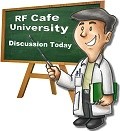|
< Previous
Next > Chipping Your Ride OK, so maybe you have put on the
geek glasses, donned a pocket protector and over-clocked your PC, but what have
you done for your sports car or 4WD computer lately? Conversion kits are now available
that, with a little soldering finesse, can override your car's factory computer
(engine control unit, or ECU) to crank maximum horsepower out of your engine. To
accommodate emissions laws, lifetime wear guarantees/expectations of its moving
parts, fuel mileage goals and model-to-model variations, the ECU is typically "mapped"
for output power performance way below maximum. The process is called "chipping"
because at first it was possible to simply replace a preprogrammed instruction chip
in a socket. After 1996, law required the IC to be soldered to the PCB to prevent
chipping. As with any other prohibited activity, enterprising geniuses figured out
how to override the system using various bolt-on/solder-on daughter boards. Of course,
your warranty is voided if the mod is discovered, but many kits install in a way
that makes them removable without much of a trace, and some include external switches
that permit switching between turbo and stock modes while in the garage for inspection
or tune-up. An example done for Popular Science magazine increased a 1999 VW Passat's
1.8L engine from 150 hp to 205 hp. Of course, with gas prices going the way they
are, you might want to look for a kit to tame your 300 hp babe machine down to about
150 hp at the flip of a switch, instead. |



























 "
"